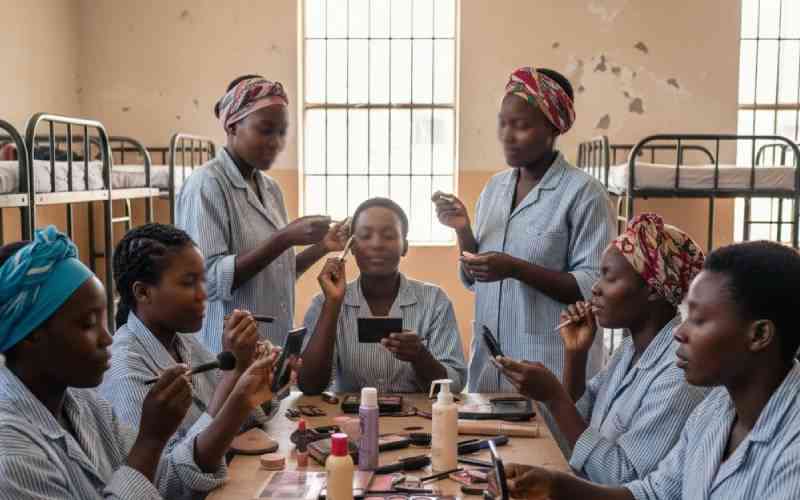
Grace Wambua, a mother of two, only remembered she had not taken the emergency pill several days after engaging in unprotected sex.
“Nobody told me how it is supposed to be used,” says the 28-year-old kindergarten teacher in Tala, Machakos County. “I was naive and had just joined college. I was advised by my friend to buy it after confiding what had happened.”
Her first son was the result of the failed emergency contraceptive but she does not regret the unplanned pregnancy. She only wishes pharmacists can advise young girls buying P2 over the counter on how to use the drug.
“I am now raising a P2 baby because nobody told me how or when I should have taken it,” she says.
Emergency contraception is used to prevent pregnancy after sexual intercourse without protection. The most common in Kenya is EC or Postinor-2 also known as P2, a hormonal emergency contraceptive pill with a high dose of progesterone and varying side effects, some severe.
Dr Kinyua Muriithi, a pharmacist, says an emergency contraceptive should be taken within 72 hours after having unprotected sex.
“The earlier the better and the more the delay, the higher the chances of failure,” he says.
Dr Kinyua warns that the emergency pill is not 100 per cent effective as there are cases of failure, which can lead to pregnancy if the drug is not properly used.
Emergency contraceptives prevent the body from ovulating and can only be effective if ovulation has not happened.
Dr Kinyua laments that many girls and women plan to use the emergency pill, yet it is meant for emergency cases like during sessions when a condom bursts, fails or slip-off or after rape. It is meant to prevent pregnancy when there is urgency.
“The safety data that we have in regards to this pill is only for emergency use, meaning it should be used at most three times in a year but people use it frequently since some use it even three times in a month which is very wrong,” says Dr Kinyua.
The World Health Organisation (WHO) advises that emergency contraceptives be used after unprotected sex, when there are concerns of possible contraceptive failure from improper or incorrect use, such as condom breakage, slippage, three or more consecutively missed combined oral contraceptive pills or three days late during the first week of the menstrual cycle.
It can also be used more than three hours late from the usual time of intake of the progesterone-only pill or if there is dislodgment or early removal of a diaphragm or cervical cap, during failed withdrawal or miscalculation of the abstinence period among other situations.
This is because the drug has high levels of progesterone hormones which interfere with the normal menstrual cycle, causing heavy bleeding and spotting in between periods.
Emergency contraceptive pills can cause nausea, vomiting, diarrhea and fatigue. They have at least four times the progesterone found in normal birth control pills.
“If the normal pill can cause bleeding in some people, now imagine then what P2 can do,” says Dr Kinyua.
He advises women to factor in protective measures if they plan to have unprotected sex like withdrawal, spermicidal gel and cervical caps among others while preserving P2 for emergency cases only.
Dr Frederick Kairithia, a gynecologist, warns that there is a close linkage between emergency contraceptive pills and ectopic pregnancies.
This, he says, happens because progesterone found in the drug delays the migration of the embryo from the fallopian tubes into the uterus, making the embryo start growing within the tubes, thus resulting in an ectopic pregnancy.
“Some of the consequences will be surgical removal of the pregnancy if it bleeds and may also require surgery to remove the tube that has been affected,” he says.
What you need to know about the P2 pill
Emergency contraceptive pills can also be indirectly linked to certain conditions like high blood pressure or cardiac diseases due to the high presence of progesterone in the drug.
“For the regular contraceptives, each person is assessed individually to determine which method they should use or which one they cannot use,” the doctor says. “For example, women who have high blood pressure or are hypertensive are warned against hormonal contraceptives and as for P2 the high levels of progesterone can worsen an already existing condition.”
People with cardiac diseases and those with pacemakers in the heart, should also avoid hormonal contraceptives.
Dr Kairithia says those with a high frequency use of emergency contraceptive pills are likely to engage in unprotected and unsafe sex, thus increasing chances of contracting sexually transmitted diseases.
Of greater concern is that people are more worried about getting a pregnancy and not getting sexually transmitted diseases, including scarring of the fallopian tubes and attendant infertility.
Additionally, those exposed to multiple sexual partners risk the human papillomavirus (HPV) which causes cervical cancer.
WHO recommended Emergency Pills include; ulipristal acetate, levonorgestrel, or combined oral contraceptives consisting of Ethinyl estradiol plus levonorgestrel.
It also recommends use of a copper-bearing Intra-Uterine Device which is one of the most effective forms of emergency contraception.
For effectiveness, it should be inserted within 120 hours of unprotected sexual intercourse and a woman may continue to use the IUD as an ongoing method of contraception or may choose to change to another.
 The Standard Group Plc is a multi-media organization with investments in media
platforms spanning newspaper print
operations, television, radio broadcasting, digital and online services. The
Standard Group is recognized as a
leading multi-media house in Kenya with a key influence in matters of national
and international interest.
The Standard Group Plc is a multi-media organization with investments in media
platforms spanning newspaper print
operations, television, radio broadcasting, digital and online services. The
Standard Group is recognized as a
leading multi-media house in Kenya with a key influence in matters of national
and international interest.










